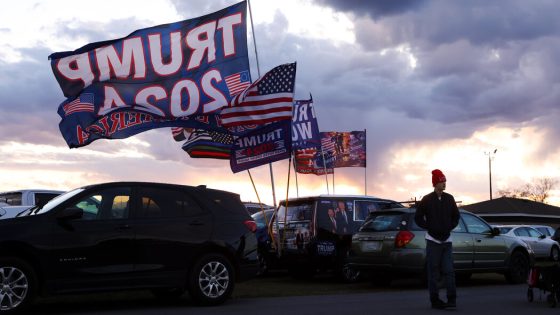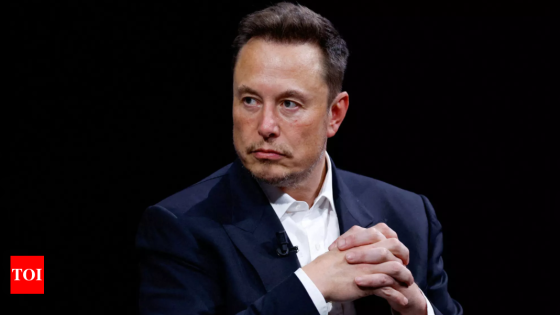The primary season is about to shift into overdrive, with three caucuses and primaries this weekend, another one on Monday and then Super Tuesday, when primary voters in 15 states will cast their votes.
Polls suggest that former President Donald Trump is very likely to win most, if not all, of these contests. If those projections hold, Trump will have nearly clinched the Republican nomination — but not quite.
I spoke with Nate Cohn, The New York Times’s chief political analyst, about when Trump’s nomination could become a lock. (On the Democratic side, neither of Biden’s primary opponents — Dean Phillips or Marianne Williamson — has won a single delegate or appears poised to do so, so there is no real math to do.)
Nate, what are the basics of the delegate math?
The basics are simple: A candidate needs to win a majority of the 2,429 delegates to the Republican National Convention to become the party’s nominee. Those delegates are usually awarded state by state, based on primary and caucus results.
The complicated part is that the Republican rules allow states to decide how to award their delegates, and they take very different approaches — from awarding them proportionally based on a candidate’s share of the vote to allowing one candidate to receive every delegate if they win statewide.
Could Trump clinch the nomination on Super Tuesday?
It’s close, but the answer is no! By the end of Super Tuesday, just under half of delegates to the Republican convention will have been awarded, so, technically, it’s not possible for a candidate to win a majority by then. For good measure, Nikki Haley and Ron DeSantis won enough delegates in Iowa, New Hampshire and other early states to prevent Trump from clinching even if he swept every Super Tuesday state.
What are the possible scenarios coming out of Super Tuesday?
If the polls are right, there’s really only one scenario: Trump finding himself within easy striking distance of the nomination.
Right now, national polls show him with nearly 80 percent of the vote, and that would net him most of the delegates regardless of the exact rules by state. Better still for him, many states — including California — award all of their delegates to the winner if that person exceeds 50 percent of the vote, as Trump is expected to do. There are a few Super Tuesday states that award their delegates proportionally, but he would still win nearly all of the delegates if he’s doing as well as the polls suggest.
Put it together, and Trump could easily win more than 90 percent of the delegates available on Super Tuesday.
How soon could he clinch the nomination, and what would have to happen?
Mathematically, the soonest possible date is March 12, when Georgia, Hawaii, Mississippi and Washington will vote.
That would be tough to pull off, but given how well he’s doing in the polls, it’s hard to rule out without a very detailed analysis. After all, if Haley fails to break 20 percent of the vote, she may not even receive delegates in the states where the rules make it relatively easy for her to do so.
If he doesn’t manage it then, when could he?
More realistically, Trump would clinch on March 19, when Arizona, Florida, Illinois, Kansas and Ohio cast their ballots.
You can follow the delegate counts here as the race unfolds.
Trump says little on Gaza
In the nearly five months since Hamas terrorists invaded Israel on Oct. 7, Donald Trump has said noticeably little about the subject.
He criticized Prime Minister Benjamin Netanyahu of Israel, before quickly retreating to more standard expressions of support for the country. And he has made blustery claims that the invasion never would have happened had he been president. But his overall approach has been laissez-faire.
“So you have a war that’s going on, and you’re probably going to have to let this play out. You’re probably going to have to let it play out, because a lot of people are dying,” Trump said in an interview with Univision a month after the attack. His main advice to Netanyahu and the Israelis, he said then, was to do a better job with “public relations,” because the Palestinians were “beating them at the public relations front.”
Trump’s hands-off approach to the bloody Middle East conflict reflects the profound anti-interventionist shift he has brought about in the Republican Party over the past eight years and has been colored by his feelings about Netanyahu, whom he may never forgive for congratulating President Biden for his 2020 victory.
Trump’s initial instinct in the days immediately following the greatest single-day loss of Jewish life since the Holocaust was to use Israel’s national trauma to settle his score with Netanyahu.
On Oct. 11, Trump publicly attributed the Hamas invasion to Netanyahu’s lack of preparation, and praised the Lebanese militant group Hezbollah as “very smart.”
Trump has offered no substantive criticisms of Biden’s response to the Hamas invasion and Israel’s retaliation in Gaza. Instead, he has pinned the blame for the entire crisis on Biden’s “weakness,” in the same way he often does when violence or tragedy occurs.
“You would have never had the problem that you just had, the horrible problem where Israel — Oct. 7, where Israel was so horribly attacked,” the former president told a crowd in Rock Hill, S.C., on Feb. 23.
It is unimaginable that in a pre-Trump Republican Party, the standard-bearer would have had so little to say about a major terrorist attack against Israel and a broadening regional conflict in the middle of a presidential campaign.
“This is one of America’s closest allies under attack. And it’s stunning that in such circumstances you have heard so little from Trump,” said John Bolton, a former national security adviser to Trump who became a sharp critic of him and who has long been hawkish in support of Israel.
Yet people close to Trump, who leads Biden in polls, feel little, if any, urgency for him to put out more detailed foreign policy plans — about Israel or any other matter.
Trump has also enthusiastically consumed news about young progressives turning against Biden over Israel. And his campaign and its allies plan to exploit that division to their advantage.
One idea under discussion among Trump allies, as a way to drive the Palestinian wedge deeper into the Democratic Party, is to run advertisements in heavily Muslim areas of Michigan that would thank Biden for “standing with Israel,” according to two people briefed on the plans who weren’t authorized to discuss them publicly.
—Jonathan Swan, Maggie Haberman and Michael Gold
Read the full story here.
Source Agencies



